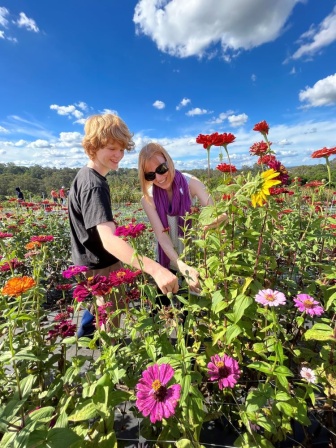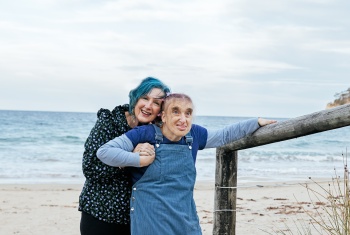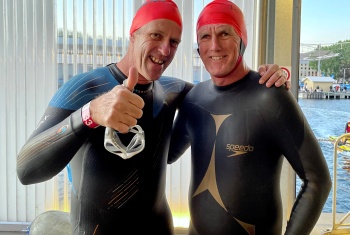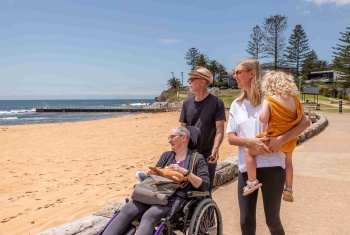Briana Blackett says the NDIS has allowed her family to ‘live decent, ordinary lives.’
A Northwestern Sydney sole parent, Briana has 2 boys, Max, 16 and Freddy, 14.
Both have complex autism impacting their ability to communicate and access the world on their own.
'Prior to the NDIS I cashed everything I owned in to afford therapies for my kids,’ Briana said. ‘There was no way I could care for them and work. It was just impossible.
‘As a full-time parent and carer you are pulverised. You are always actively on duty, time poor and therapies and equipment aren’t cheap. For us the NDIS was 100% life changing,’ she said.
‘The NDIS has enabled us to live decent, ordinary lives. That may not seem much to most people but for us it’s all we ever wanted, but I needed support to help me with the kids if I was ever to return to meaningful work.
‘Now I have a job. I’m not only able to fully provide for us, I also have something for me!
‘There’s a saying, ‘Dignity at work and dignity through work.’ For me, I get a lot of personal satisfaction being able to work and earn – being able to contribute.
‘The NDIS has meant I could do it. It’s not just given us freedom and financial security; it’s also given me the personal satisfaction I needed. I have my identity back and feel valued.’
Briana said Max and Freddy have high support need and can’t be left unsupervised.
‘Someone always has to be there to ensure they are safe and supported,’ she said.
‘They need help with personal care, community access, communicating – support with every aspect of their lives really for it to be a good, fulfilling, meaningful, and happy life.’
Using Max and Freddy’s NDIS funding, Briana was able to handpick therapists and interview support workers, engaging people who she felt would work best with her boys.
‘I’m quite selective when it comes to therapists and support workers. I’d encourage others to be the same. Make sure you get right fit,’ she said.
‘I’ve managed to build up a really good team of therapists and support workers. They talk regularly with each other about how to support the boys and how they are going.
‘It means we’re all on the same page when it comes to their supports, and we are all using the same strategies.’
Now able to work a regular workday, Briana, a journalist, said it’s great to know she has a trusted team of support workers to meet Max and Freddy needs.
‘There are still times I have to take a day or 2 off work to cater for any issues that may arise, but I’ve been fortunate to have carer friendly workplaces. That’s important too,’ she said.
‘When I finish my workday I head home, and I pick up my caring role again.
‘It’s still pretty full on. I’m still doing some work one way or the other, paid or unpaid, but I couldn’t have done both without the NDIS.
‘I feel so much more satisfaction knowing I’m going to work; the boys are in good hands and I’m able to provide for them and contribute again,’ she said.



